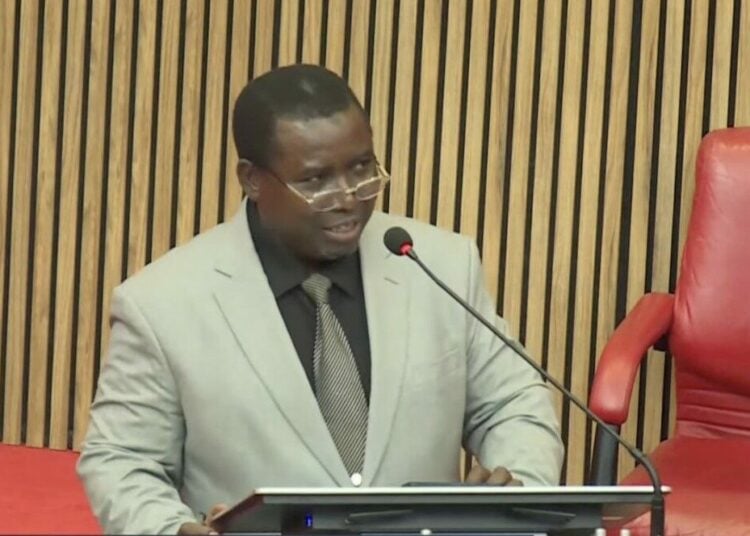The confirmation of Professor Joash Amupitan as the new Chairman of the Independent National Electoral Commission represents a critical opportunity for Nigeria to rebuild faith in its electoral system.
Amupitan becomes the 13th substantive chairman of Nigeria’s electoral commission since independence in 1960, joining a lineage that reflects the nation’s long and often turbulent democratic journey.
Before him were Eyo Esua (1964–1966), Michael Ani (1976–1979), Victor Ovie-Whiskey (1980–1983), Eme Awa (1987–1989), Humphrey Nwosu (1989–1993), Okon Uya (June–November 1993), and Sumner Dagogo-Jack (1994–1998). Others who held the position include Ephraim Akpata (1998–2000), Abel Guobadia (2000–2005), Maurice Iwu (2005–2010), Attahiru Jega (2010–2015), and Mahmood Yakubu (2015–2025).
After 10 years under Professor Yakubu’s leadership—a period marked by significant technological investments yet persistent concerns about implementation and credibility—the commission needs reformist leadership willing to confront systemic failures with honesty and determination.
Amupitan’s credentials as a law professor, Senior Advocate of Nigeria, and vocal advocate for institutional reform suggest he understands the magnitude of the challenge before him.
Yet credentials alone do not guarantee success. Nigeria’s electoral history demonstrates that well-intentioned leaders can be overwhelmed by political pressure, bureaucratic resistance, and resource constraints.
Amupitan must recognise that he is entering an institution where powerful political interests have every incentive to maintain systems that enable electoral manipulation. His success depends not on good intentions but on concrete action, institutional reform, and the political courage to resist manipulation from all quarters.
The new INEC chairman’s ambitious roadmap—outlined during his Senate confirmation—offers promising starting points. His commitment to making “no voter left behind” through technology deployment and logistical improvement addresses genuine weaknesses in previous electoral processes. His pledge to conduct a comprehensive audit of INEC’s technology infrastructure is essential but only a starting point.
The Bimodal Voter Accreditation System (BVAS) and the INEC Result Viewing Portal (IReV) were conceived as “game changers” but failed to deliver credibility because of poor configuration and coordination.
Rather than simply auditing these systems, Amupitan must determine whether they are fundamentally sound but poorly implemented or whether they require complete redesign.
In our view, the critical test will be whether Amupitan can stay ahead of political actors determined to subvert the electoral process.
Amupitan must anticipate that political actors will pressure INEC to prioritise their candidates’ interests over electoral credibility. His institutional independence—and willingness to resist such pressure—will determine whether INEC restores public confidence or slides further into disrepute.
The imminent Anambra State gubernatorial election will provide an early test of Amupitan’s leadership and INEC’s capacity to conduct free, fair, and credible elections. This election will signal whether the new leadership has learned from previous failings or whether systemic problems persist.
The caliber of electoral management in Anambra will significantly influence public expectations for the 2027 general elections and the political cycle thereafter.
Looking ahead to the 2027 general elections, Amupitan faces the most consequential test any INEC chairman has confronted. By 2027, Amupitan will have orchestrated the Anambra governorship election, FCT Area Council elections, and state governorship elections in Ekiti and Osun. These contests will either build confidence in his leadership and INEC’s capacity or expose continued vulnerabilities that undermine the commission’s credibility.
The 2027 general elections themselves will represent the ultimate test of whether electoral reforms have genuinely transformed Nigeria’s democratic processes.
Amupitan must understand that political actors across the spectrum will attempt to manipulate elections in 2027. Some will pressure INEC to favor their candidates through administrative measures. Others will deploy violence and intimidation to suppress opposition votes. Still others will attempt to compromise INEC staff through inducements or coercion.
Amupitan’s institutional strength must consist not merely of good policies but of demonstrated willingness to resist all such pressures regardless of political consequences.
He must also confront the reality that electoral credibility depends partly on political culture beyond INEC’s control. Security agencies that protect electoral processes sometimes serve partisan interests.
Politicians and party officials who mobilise their supporters sometimes cross the line into violence and voter suppression. Judicial processes that adjudicate electoral disputes sometimes reflect political calculations rather than legal principles.
While INEC cannot reform these institutions, Amupitan can coordinate with them, demand transparency, and publicly dissociate INEC from irregularities committed by other actors.
The appointment of Amupitan as INEC chairman offers Nigeria a genuine opportunity to strengthen electoral institutions and restore public confidence in democratic processes. However, opportunity does not guarantee success.
Amupitan must demonstrate that his reformist rhetoric translates into institutional action. He must prove that he can navigate political pressure without compromising electoral credibility.
Most importantly, he must recognize that his tenure will be judged not by his intentions or even by his policies, but by whether elections under his leadership are demonstrably freer, fairer, and more credible than those under his predecessors. Nigerians have heard electoral reform promises before.
Amupitan must deliver results that make every vote count and convince citizens that their votes matter. This is the non-negotiable mandate of his leadership. Anything less represents another squandered opportunity for democratic strengthening.





